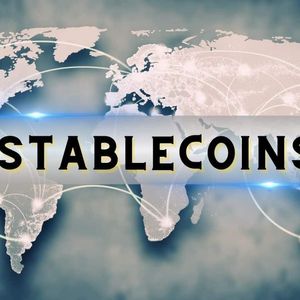Norway announced plans to ban new data centres, purpose-built for crypto mining, to conserve electricity for more productive businesses, such as industries that employ more Norwegians and improve the country’s economy. Bitcoin and other proof-of-work cryptocurrencies use substantial electricity to validate their ecosystems. In April 2024, the Norwegian government announced plans to restrict data centres to focus resources on more productive forms of work. Norway’s digitisation Minister, Karianne Tung, said the initiative aimed to control and limit undesirable projects such as crypto mining. Terje Aasland, Energy Minister for Norway, said that the main impetus for temporarily banning crypto mining data centres was meeting the nation’s climate targets. Aasland said crypto mining was incompatible with the government’s climate targets because the technology uses excess electricity and doesn’t contribute meaningfully to the nation’s long-term investments. Norway has a history of cracking down on crypto mining. In 2022, the government proposed ending tax incentives for the crypto mining industry, forcing the sector to pay the standard rate for electricity. Trygve Slagsvold, Finance Minister for Norway, said the move was about prioritising energy to benefit the whole community. Slagsvold pointed out that crypto does little to help the local community, yet uses tremendous energy. Norway has been an attractive destination for Bitcoin miners because it powers its grid with 92% of its energy from hydropower. Another 7% of energy is powered by wind sources, making the country an incredibly resourceful economy as far as climate targets are concerned. However, this is not enough for the Norwegian government because it is concerned about the long-term viability of crypto mining. Residents of Hadsel, a Norwegian province, petitioned the government in October 2024 to shut down a local Bitcoin mine. Yet, they suffered a rude shock when their electricity prices skyrocketed due to energy companies accounting for lost revenue. Venture capitalists quickly pointed out that residents suffered when the government targeted Bitcoin. However, the mayor of Hadsel, Kjell-Borge Freiberg, said that residents had been complaining about the noise emanating from the Bitcoin mining data centre. The Bitcoin mining operations produced 20% of the energy company’s revenue. When the Bitcoin mine was shut down, the energy company passed on its lost revenue to consumers. It is also possible that the energy company is punishing the residents for disrupting its bottom line. The energy company, however, may lament that one customer could disrupt their business model by shutting down operations. It is estimated that residents of Hadsel, due to the closure of the mine, will pay an extra $235 to $280 on their annual electricity bill. Russia implemented a mining ban on ten regions, including ones that already experienced a vulnerable energy grid. Many countries, such as Norway, are taking a critical stance towards crypto mining, at times for meeting climate targets, while at other times to restrict the spread of anonymous currencies. Energy-rich countries, such as Norway, are budgeting their energy use to prioritise their grid for what they believe are more productive industries. Miners must either remain in the country, invest in low-power consumables, or relocate to another country. There is also the option to switch completely to proof-of-stake methods to appease the Norwegian government and make a profit at the same time. In 2024, Norway first attempted to scrutinize the crypto mining industry by announcing a new set of regulations to shape the market in a way that they felt was appropriate, specifically to adhere to their climate change targets and beliefs about sustainability. The new regulations started this process by requiring all data centres engaged in crypto mining to register their activities. The Norwegian government, however, is adamant that the regulations were not intended to punish the crypto industry but were designed to better align the industry with national targets.
















